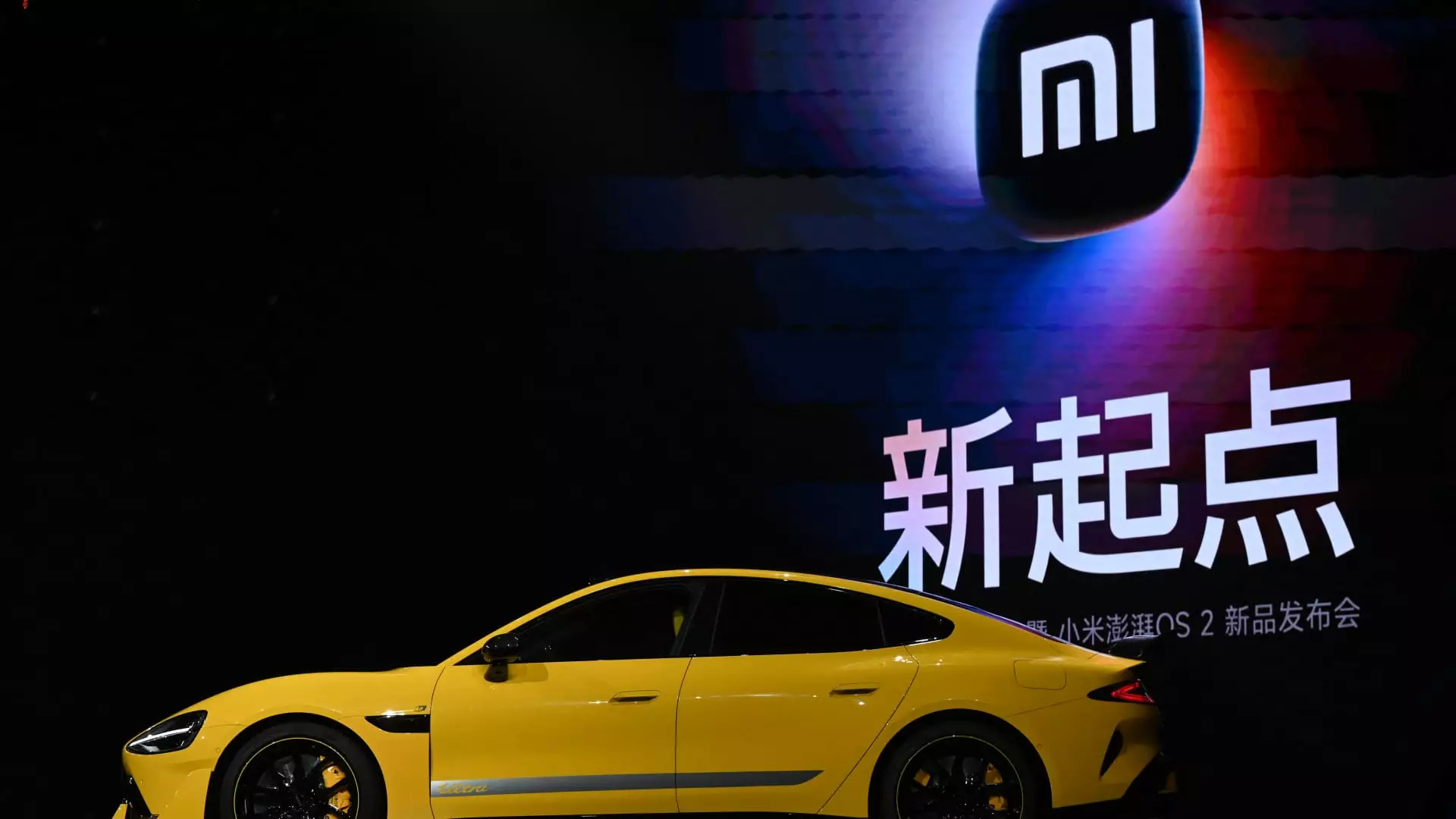In the rapidly evolving landscape of the electric vehicle (EV) sector, Xiaomi, a brand traditionally associated with smartphones and consumer electronics, is making waves with its ambitious foray into automotive manufacturing. The company recently declared that it delivered over 20,000 units of its SU7 electric vehicle in October alone, marking a significant milestone in its goal to establish itself as a contender in China’s competitive EV market.
Xiaomi’s journey into the electric vehicle domain commenced in 2021, a pivotal year when the company unveiled strategic plans for automotive production and subsequently initiated the establishment of a dedicated manufacturing facility. This move was not merely an expansion of its product line but a calculated maneuver to diversify its business portfolio amidst growing competition from established automotive giants and innovative startups alike. The SU7, Xiaomi’s inaugural car model, hit the market at a competitive price point, approximately $4,000 less than Tesla’s Model 3, and has since attracted considerable attention.
With over 75,000 units delivered to date, including the impressive October figures, Xiaomi’s production capabilities have rapidly matured. Analysts indicate that the swift delivery pace sets Xiaomi apart from other contenders in the EV market; for instance, rival companies like Nio and Xpeng required several years to achieve similar milestones. The aggressive production strategy signals not just ambition but a robust operational framework capable of meeting consumer demand in a hyper-competitive landscape.
Despite the impressive delivery stats, Xiaomi operates in a market rife with competition; established players such as Tesla, Nio, and Xpeng continue to dominate the sector. Tesla’s Model Y emerged as the top-selling EV in China with over 48,000 units sold in September alone, delineating the fierce competition Xiaomi faces. However, Xiaomi’s strategic pricing and rapid production capabilities may facilitate its ascent within this dynamic market.
Xiaomi’s agility in the EV arena is especially notable given the current climate where rivals are also attempting to stimulate growth. For example, Xpeng recently reported a historic monthly delivery figure driven in part by a lower-cost brand launch. Nio, on the other hand, has encountered hurdles maintaining consistent delivery milestones. This uneven playing field underscores how Xiaomi’s operational efficiency may be advantageous.
Consumer Response and Future Projections
The consumer response to Xiaomi’s offerings remains encouraging, as evidenced by the preorders for the premium variant of the SU7, the SU7 Ultra. Xiaomi reported that within a mere ten minutes, it recorded over 3,600 preorders for the SU7 Ultra, each accompanied by a substantial deposit. This reflects a growing interest in premium EV offerings, a segment where Xiaomi aims to assert its presence. The company’s claims regarding the SU7 Ultra’s performance, particularly its recent record-setting lap on the Nurburgring race track, could further bolster its appeal among performance enthusiasts.
In light of the current momentum, analysts have revised their projections for Xiaomi’s future deliveries, anticipating an increase from 238,000 to 250,000 vehicles for the following year. This optimism aligns with Xiaomi’s broader strategy of enhancing its product lineup and expanding its market share in the EV landscape, which has become increasingly crucial for tech companies seeking diversification.
Xiaomi’s venture into the electric vehicle sector epitomizes the company’s commitment to innovation and market responsiveness. As it navigates the challenges of a competitive landscape and builds its reputation as a car manufacturer, the upcoming months will be pivotal. The company’s capacity to sustain production growth, foster consumer enthusiasm, and innovate in a saturated market will determine whether it can solidify its position as a key player in the burgeoning world of electric vehicles.
Through strategic pricing, efficient production, and a focus on customer experience, Xiaomi is well-poised to disrupt the status quo. However, the journey will require continual adaptation and a keen eye on emerging market trends if it hopes to carve out a lasting presence in the global EV market. As the industry evolves, so too will the strategies employed by Xiaomi, representing an exciting trajectory in the intersection of technology and automotive excellence.

